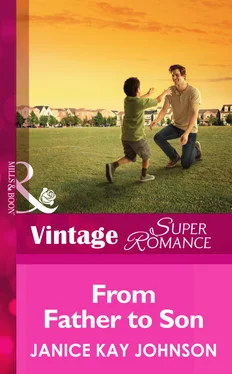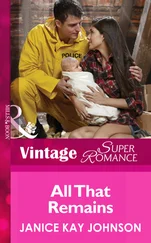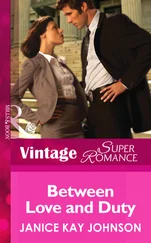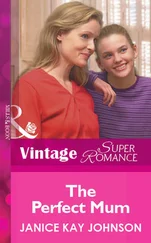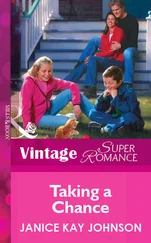Wait.
Niall had never felt so steady, so cool. He was thinking, waiting with extraordinary patience, willing the instant to come when he could kill this bastard without unduly risking the woman.
There. The woman stumbled. Niall pulled the trigger and the Glock jerked in his hand exactly as it did at the gun range. Bang, bang, bang. Blood blossomed; glass on the minivan exploded; the woman fell forward, then, screaming, began to crawl away.
The bank robber was down, broken glass all around him. His handgun skittered away across the pavement from inert fingers. He lay sprawled, unmoving.
Glock held out in the firing position, Niall walked cautiously forward until he stood only feet from the man. There was one hell of a lot of blood. Dead, he thought coldly. His second dead body for the day. At least he’d only killed one of them.
This was also, however, his second shooting resulting in a fatality in the past year. The first was a crazy guy who’d intended to slit Jane’s throat. Niall had gotten there ahead of Duncan, so he’d been the one to take the shot. He’d as soon this didn’t become a habit, he reflected, in that weird way a mind worked at a moment like this.
Sirens rose to a crescendo. Police cars slammed to a halt blocking both exits from the bank parking lot. Officers leaped out and took cover. A lot of weapons were drawn on Niall.
Something made his glance slide sidelong to the broken windows of the minivan, and a monster of fear rose in him. There was a child car seat inside. A Mercedes-Benz of car seats, it occurred to him, even as he realized there was a kid in that seat, slumped forward. Blood was shockingly red against the dandelion-pale fluff of hair.
Please God, don’t let me have killed that kid.
THERE WERE ONLY A FEW mourners at Enid Cooper’s funeral. Her contemporaries were gone, or in assisted living. A couple of neighbors were there, and Rowan Staley and her father. Not Mom; she and Dad had separated and filed for divorce.
At least Rowan had persuaded her parents-in-law not to attend. She had been able to leave the kids with them. Maybe at six years old Desmond had been old enough to attend a funeral, but why should he have to? It wasn’t an open casket; Rowan wouldn’t have that. Gran had had a thing about dignity; she would have hated the idea of everyone filing past gazing at her wrinkled, dead face.
Gran’s tenant, whose name escaped Rowan, was here, too. When she’d seen him coming and going at Gran’s, he’d never stopped to introduce himself or anything like that. A couple of times he had given a distant nod before disappearing inside the tiny cottage. Despite his unfriendliness, Rowan had actually been glad to know he was there. After her divorce, she’d had the wistful thought that she could live in the cottage, but it wasn’t big enough for her and the kids. And even though Gran had room in her house, she was too old and not patient enough to live with a rambunctious kindergartener and a wistful four-year-old. Never mind the dog. Gran didn’t hold with animals being in the house. Rowan hadn’t had any choice but to take the kids and move in with her in-laws, relieved that Gran would be safer having a law enforcement officer living right there behind her house.
She’d been told he was the one who’d found Gran. And he’d cared enough to come today to pay his respects. Rowan wondered if he would bother speaking to her or her father after the service was over. She was betting not.
The minister was talking, but it was like the sound of running water to Rowan. Pleasant but holding no meaning. He hadn’t even known Gran. She hadn’t attended a church service in at least ten years, maybe more. He was young, new. This was his standard spiel. His tone was filled with warmth and regret, which she appreciated even though he couldn’t possibly feel either emotion. This was like a stage performance for him, she supposed.
I should be listening.
Dad’s gaze was fixed somewhere in the vicinity of the pastor, but his expression was abstracted. He and his mother hadn’t been close; as she’d gotten older and crankier, she’d also become increasingly disapproving. Gran had been one hundred percent disgusted with her son’s recent conduct. But still. He must have good memories. Regrets that were way more genuine than the pastor’s. As mad as Rowan often felt at her dad, what if he died and she had to sit at his funeral trying to remember the last time she’d said “I love you?” Remembering the angry words they’d exchanged?
She gave a shudder and stole a look sideways, to find that Gran’s tenant had turned his head and was watching her. Goose bumps chased over her skin. He had a craggy face, dark red hair cut short and flint-gray eyes. Eyes that were—not cold, Rowan had decided the first time she’d seen him. Remote. As if he stood a thousand paces from the rest of humanity. Didn’t know her, didn’t want to know her. Or anybody else.
It had to be her imagination. Maybe it was a typical cop look, cynicism to the nth degree. Or maybe he didn’t like her. Did he think she’d neglected Gran? The thought filled her with outrage. She glared at him, saw his eyebrows twitch, then he inclined his head the slightest amount to acknowledge her existence and turned his attention to the front.
Why had he been looking at her at all? Did he guess she was Gran’s heir and therefore his new landlady? Or would he have assumed he would be dealing with Dad?
Dad had been a little put out when the will was read and he found out his mother hadn’t left either her relatively modest savings nor her house to him, but to his credit he’d mostly been rueful.
“The two of you always were close,” he had said, shrugging. “And you’ve been trying to take care of her.”
Rowan wished now she had been able to do more.
Or maybe Gran had known. Guessed, anyway. Rowan hadn’t talked even to Gran about her marriage, or her shame at feeling relieved when Drew died. She hadn’t admitted how miserable she was living with his parents, who were entirely fixated on her children. Their Andrew, her husband, had been an only child.
“Desmond and Anna are all we have left,” one or the other of them said, too often. The hunger in their gazes when they looked at their grandchildren unnerved Rowan. There was too much need, too much desperation, too many expectations being fastened on young children who didn’t understand any of it.
The Staleys had been shocked when she informed them that she had inherited her grandmother’s house and would be moving into it with Anna and Desmond. She couldn’t cope without them, they declared, and they didn’t like it when she insisted that she could. It was true that she hadn’t been able to cope before this, not financially, anyway. She worked as a paraeducator—a teacher’s aide—at the elementary school. She didn’t make enough money to pay for daycare for Anna, as well as rent. But now she would be able to afford a preschool for Anna. She would own her very own home, and have rental income, as well, from the cottage.
Paid by the man with the russet hair and chilly gray eyes. She didn’t know how she felt about the idea of him living so close. Perhaps she’d scarcely see him. It hadn’t sounded as if he and Gran had much more than a nodding acquaintance.
Rowan hoped he liked dogs. She might be able to keep the kids away from him, but Super Sam the dog didn’t grasp the concept of boundaries. Thank heavens Gran’s backyard was fenced. The unfortunate part was, the cottage was inside the fence. The kids and tenant both would have to learn to close gates.
She stole another look at him to find that he appeared entirely expressionless. Somehow she felt quite sure he wasn’t thinking about Gran any more than Dad was.
Any more than I am. Rowan felt a quick stab of guilt. Oh, Gran. I did love you. I will be grateful for the rest of my life for this gift you’ve given me.
Читать дальше
